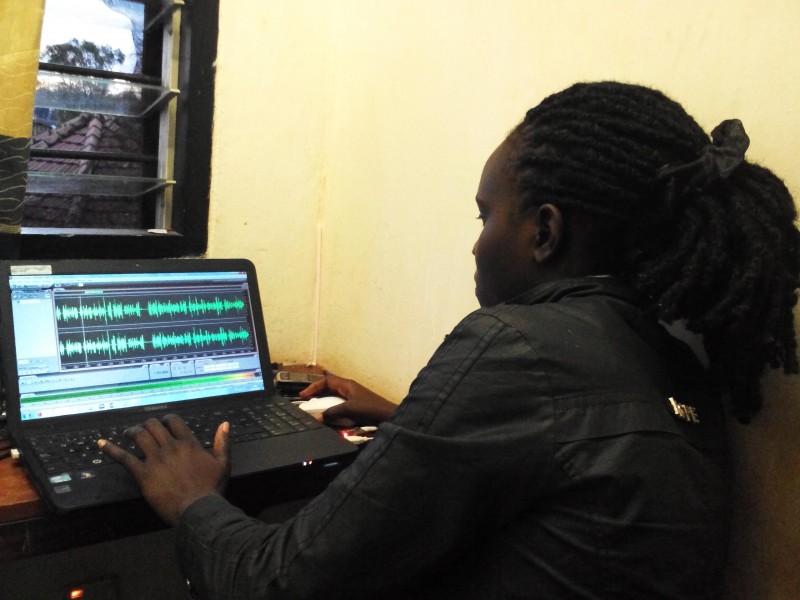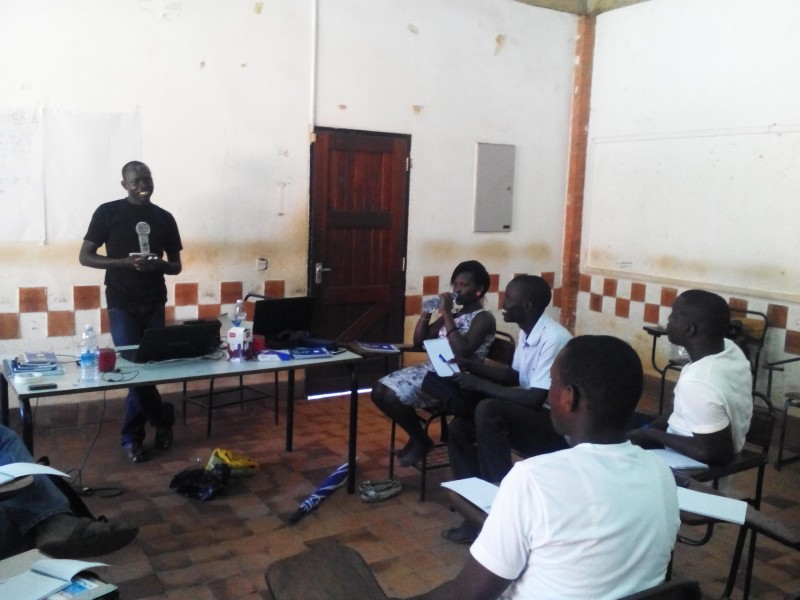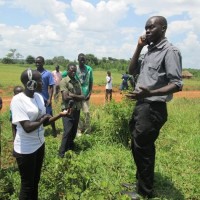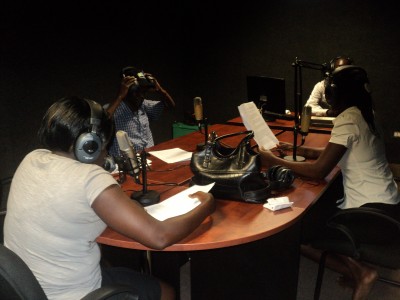Rising Voices Grantee Project Update
We generate our content from the community, analyze it, package it creatively and carefully considering the interests of the community and give it back to them through the broadcasts which comes in a regular basis in the name of Common Community, a radio soap opera on governance, electoral democracy and social justice. This is what we are doing with the Rising Voices Micro Grant here at Theatre Technology House (TTH).
Whereas doing the above would seem like we have done enough and can now go for holidays, in our format of broadcast, all the above processes mark just the beginning of the real thing. Beginning with the production process, we set in for the real communication, where the cycle is complete; the feedback and response-to-feedback stage.
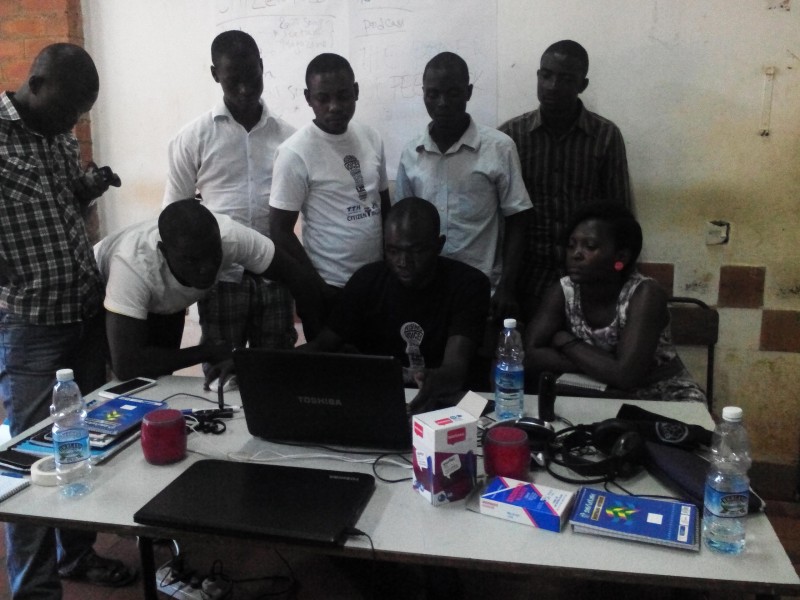
Common Community project photo provided by grantee.
Unlike a normal radio or television soap, where the producers determine the beginning and the end of everything, producing a drama series on community issues, using community-generated content requires community involvement at every subsequent stage of the plot. The listeners contribute to the direction of the flow of events. In this way, they feel they are part of the problem and solution; they realize that their contribution is honoured and reflected in the production.
How is this working with us? Because we have various platforms for feedback (short text messages, phone calls and direct interaction with our production field team), listeners are always free to share their feedback immediately after or during broadcast. All you need to do is craft a provocative exposition, drop two or three episodes on air and from that point, invite them to have their say and use their say and knowledge or information gap to package the subsequent episodes systematically and logically, incorporating their views.
The truth here is that your objective of doing the production is to inform, educate, and sensitize the audience, and not to just finish the season. Therefore one must work with them, and derive solutions to their problems together with them. Let them feel they are not only part of the problems but also part of the solutions. This is what we can then call the “ideal citizen journalism”.
What does this mean then? This means you get the content, develop it, share it with the radio audience, get their feedback and use the feedback to direct you information according to the communication needs. It does not mean, you will go ahead and walk with the listeners without guiding and directing the production to your primary objectives.
It is against the above reason that we at Theatre Technology House identify and involve young people from a diverse background for our radio soap, Common Community. The team that form the production crew of community are grouped into three. The first group is a voluntary technical team. Working with the executive producer, this group is a selection of writing trainees who are directly in charge with storyline development and script writing. They are university students studying literature and English language. The second team is the content research field team. This team is a collection of young people with ability to conduct interviews and inspire the common man to talk. They are sourced from within the local community. The last group is are voluntary actors and actresses, the play´s cast. They are people involved in acting roles in the soap. They are a group of young people with talents in theatre arts mobilized and trained by TTH for different activities of the group. Whereas their primary role in the team are acting roles in the play, they are the sources for community feedback. Others arrive from as far as twenty kilometres from our production unit, others are in the city suburb, and others comes from high social class quarters, in other words all walks of life.
This multi-dimension background team brings to the programme a wealth of information, talent, and expertise needed for this programme. We then train them in the varieties of roles, this makes them flexible. In the team we have graduates, high school dropouts, those who have not accessed formal education, male, female alike and most or all of them are youths.

